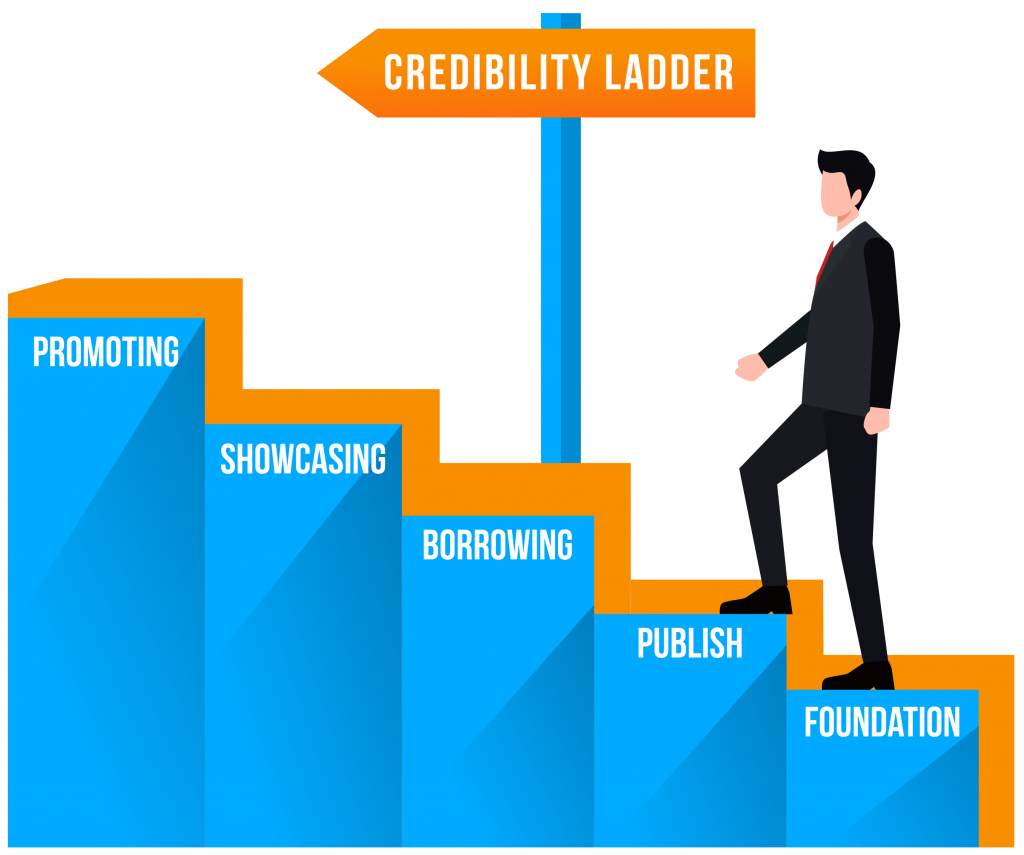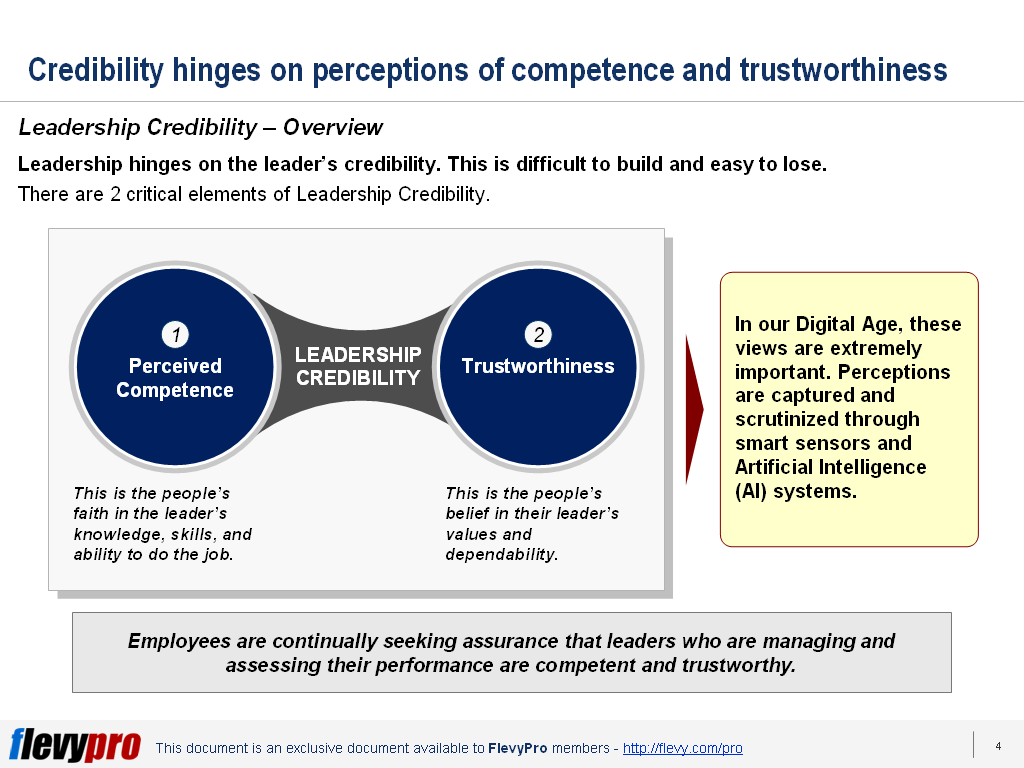Building Credibility In Leadership

In today's rapidly evolving professional landscape, the ability to lead effectively hinges on one crucial factor: credibility. Whether at the helm of a global corporation or leading a small team, leaders must cultivate trust and respect to inspire action and drive success.
Credibility, the foundation of effective leadership, enables leaders to influence, motivate, and guide others with confidence. A leader's credibility directly impacts employee engagement, organizational performance, and overall success.
But how exactly is credibility built, and what are the key elements that contribute to a leader's perceived trustworthiness and authority?
The Pillars of Leadership Credibility
Building credibility is not a one-time event but rather a continuous process of demonstrating competence, integrity, and genuine care for others. These are the cornerstones upon which a leader's reputation is built.
Competence: Demonstrating Expertise
A leader's competence is often the first thing followers evaluate. This involves possessing the necessary knowledge, skills, and experience to effectively guide the team.
According to a study by Harvard Business Review, employees are more likely to trust leaders who demonstrate a clear understanding of the business and its challenges. This translates to more readily accepting their direction.
"Credibility begins with demonstrating you know what you're talking about," says Dr. Anna Reynolds, a leadership consultant specializing in executive coaching. This involves staying updated on industry trends and consistently delivering results.
Integrity: Upholding Ethical Standards
Beyond competence, a leader must exhibit unwavering integrity. This encompasses honesty, transparency, and adherence to ethical principles in all actions and decisions.
The Edelman Trust Barometer consistently shows that trust in leaders is deeply tied to perceptions of their ethical behavior. People are more inclined to follow someone they believe is honest and acts with integrity.
When leaders are transparent and accountable for their actions, even when mistakes are made, it fosters a culture of trust. It also encourages others to take ownership and learn from their own experiences.
Care: Showing Genuine Concern
Finally, credible leaders demonstrate genuine care for their team members. This goes beyond simply meeting professional obligations and extends to understanding their individual needs and aspirations.
According to a Gallup poll, employees who feel cared for by their leaders are more engaged, productive, and loyal to the organization. This genuine care can manifest in various ways.
Examples of showing care may be actively listening to concerns, providing opportunities for professional development, and acknowledging individual contributions. It's also important to foster a supportive work environment.
The Impact of Credible Leadership
The benefits of credible leadership extend far beyond individual relationships. When leaders are trusted and respected, the entire organization thrives.
Organizations with credible leadership often experience improved employee morale, higher levels of innovation, and increased customer satisfaction. It can also lead to reduced turnover rates.
Professor David Chen of Stanford Graduate School of Business emphasizes that credible leadership is a competitive advantage. It attracts and retains top talent, fostering a culture of high performance.
Building Credibility in Practice
Building leadership credibility is an ongoing process that requires conscious effort. This is achieved through consistent behavior and strategic decision-making.
Leaders must actively seek feedback from their teams, be willing to admit mistakes, and consistently demonstrate their commitment to ethical behavior. Mentoring and coaching can also play a key role in developing credibility.
Investing in leadership development programs that focus on building competence, integrity, and empathy can provide leaders with the tools and skills they need to cultivate credibility. These programs often offer opportunities to practice and receive feedback in a safe and supportive environment.
The Way Forward
In a world where trust is increasingly fragile, building credibility is essential for leaders seeking to make a positive impact. By focusing on competence, integrity, and care, leaders can create a foundation of trust.
This trust is necessary to inspire their teams, drive organizational success, and ultimately shape a better future. Leadership credibility is not merely a desirable trait but a fundamental requirement for effective leadership.
Ultimately, credibility is earned, not given. It requires unwavering commitment to ethical principles and dedication to serving others. Leaders must embrace this responsibility and continuously strive to build and maintain their credibility.

/TTISI Blog - 5 steps to build leadership credibility.png#keepProtocol)
















